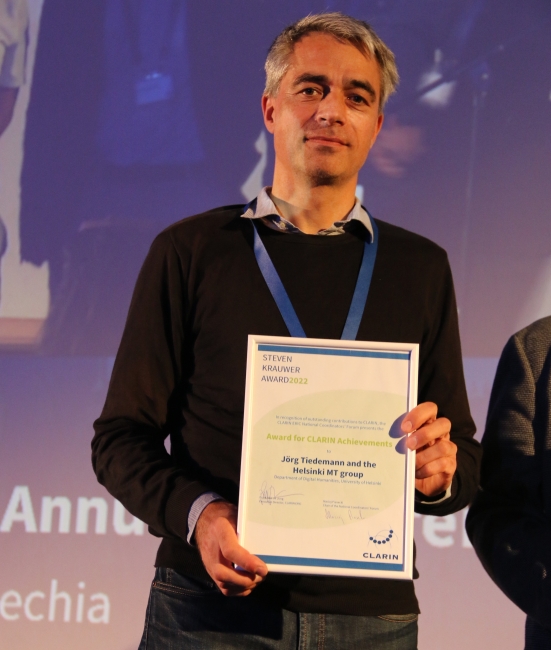About the Winners

Jörg Tiedemann, Professor of Language Technology in the department of Digital Humanities at the University of Helsinki and the Helsinki group.
In order to support Ukrainians in Finland, Tiedemann and the Helsinki MT team established various initiatives, including the machine translation (MT) system for Ukrainian to Finnish.
Their swift response to the war in Ukraine includes the collection of links and information about our MT models and tools (and other resources for Ukrainian language technology), integrating new parallel data sets, training and releasing a wide variety of translation models for Ukrainian, and developing compact translation models for deployment on small devices and simple hardware. The resources are publicly available and ready for use, as they are integrated into various platforms; among others, they can be accessed via the browser or via a bot for the messaging app Telegram, implemented by Daria Bakshandaeva. All models are available in computer-aided translation workflows through OPUS-CAT, an MT system to provide professional translators local, secure, and confidential neural machine translation in computer-assisted translation tools (CAT tools), developed by Tommi Nieminen.
The initiatives were supported by external collaboration, including with the ParaCrawl team led by Kenneth Heafield , Nikolay Bogoychev from the Bergamot team, Ian Roberts from the University of Sheffield, and made possible by the computing facilities at CSC.
The Award Ceremony
The eight edition of the award ceremony took place during the 2022 CLARIN Annual Conference, a hybrid event held in Prague and online from 10 to 12 October.
The Steven Krauwer Award for CLARIN Achievements, named after CLARIN ’s first Executive Director, was initiated in 2017 and is awarded annually. Since 2021, multiple awards can be awarded to exceptional scientists or engineers in recognition of outstanding contributions towards CLARIN goals in the areas of language resource building, tools or services.